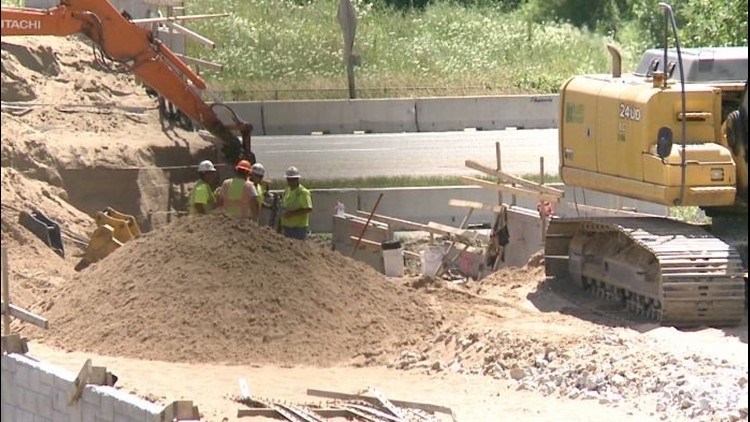SPRINGFIELD, Illinois (Illinois News Network) — Illinois needs to come up with $21 billion a year to pay for repairs to its infrastructure, according to a new report.
After last summer’s income tax hike, the state expects to bring in about $37.6 billion in the coming budget year starting in July. If lawmakers were to begin to tackle the backlog of road, bridge, building and school maintenance, a report released Wednesday by the La Grange-based think tank Illinois Economic Policy Institute estimates it would cost the state $21.25 billion more a year until updates are finished.
Illinois averages $3.3 billion in infrastructure spending annually, according to the Civic Federation.
“If some changes aren’t made soon, the problem’s just going to continue in the long run,” IEPI transportation policy analyst Mary Craighead said.
She pointed to the Legionnaires’ disease outbreak in the Quincy veterans home as an example of problems of the state’s failing infrastructure.
The report from the nonprofit, which often does research in support of labor and progressive initiatives, outlined six areas of state funding that would make up the tab in fiscal 2019 and beyond.
- State-owned facilities: $7.3 billion
- Higher education: $5.5 billion
- PreK-12 education: $3.83 billion
- IDOT roads and bridges: $1.70 billion
- Chicago’s Regional Transit Authority: $2.72 billion
- Downstate transit: $200 million
The report is largely silent on how the state could foot the massive bill. It notes that federal infrastructure funding proposed by President Donald Trump won’t solve the state’s infrastructure problems.
Some issues, such as PreK-12 education, would be partially paid for by local property taxes, Craighead said.
The House Transportation Committee gathered Wednesday to discuss ways to pay for roads and repairs, which Craighead estimates at more than $10 billion over the next five years.
Advocates and union officials said hiking gas taxes would increase revenue, but Rep. Jerry Long, R-Streator, cautioned that Illinoisans are already overtaxed.
“With the total accumulation of taxes, how much more do you think that the people are going to deal with in the state of Illinois?” he said.
Long and others said changes to policies like workers compensation need to be changed to find cost savings.



